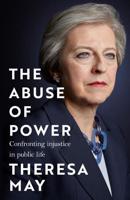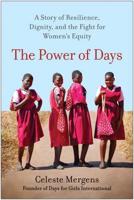Publisher's Synopsis
An acutely nuanced and original study of a state-sanctioned mass murderer. Not since Dead Man Walking have we seen so provocative a first-person encounter with the human face of evil.
Eugene de Kock, the commanding officer of state-sanctioned apartheid death squads, is currently serving 212 years in jail for crimes against humanity. Pumla Gobodo-Madikizela, who grew up in a black township in South Africa, served as a psychologist on that country's great national experiment in healing, the Truth and Reconcilation Commission. As this book opens, in an act of inescapable, multilayered symbolism and extraordinary psychological courage, Gobodo-Madikizela enters Pretoria's maximum security prison to meet the man called "Prime Evil." What follows is a journey into what it means to be human.
Gobodo-Madikizela's experience with and deep empathy for victims of murderous violence, including those killed by de Kock and their families and friends, become clear in arresting scenes set during the TRC hearings, in which both perpetrators and their victims are given voice. The author's profound understanding of the language and memory of violence, and of the searingly complex issues surrounding apology and forgiveness after mass atrocity, will leave a mark on scholarship as well as on our emotional lives. Gobodo-Madikizela's journey with de Kock, during which she allows us to witness the extraordinary awakening of his remorse, brings us to one of the great questions of our time: What does it mean when we discover that the incarnation of evil is as frighteningly human as we are?
Eugene de Kock, the commanding officer of state-sanctioned apartheid death squads, is currently serving 212 years in jail for crimes against humanity. Pumla Gobodo-Madikizela, who grew up in a black township in South Africa, served as a psychologist on that country's great national experiment in healing, the Truth and Reconcilation Commission. As this book opens, in an act of inescapable, multilayered symbolism and extraordinary psychological courage, Gobodo-Madikizela enters Pretoria's maximum security prison to meet the man called "Prime Evil." What follows is a journey into what it means to be human.
Gobodo-Madikizela's experience with and deep empathy for victims of murderous violence, including those killed by de Kock and their families and friends, become clear in arresting scenes set during the TRC hearings, in which both perpetrators and their victims are given voice. The author's profound understanding of the language and memory of violence, and of the searingly complex issues surrounding apology and forgiveness after mass atrocity, will leave a mark on scholarship as well as on our emotional lives. Gobodo-Madikizela's journey with de Kock, during which she allows us to witness the extraordinary awakening of his remorse, brings us to one of the great questions of our time: What does it mean when we discover that the incarnation of evil is as frighteningly human as we are?








